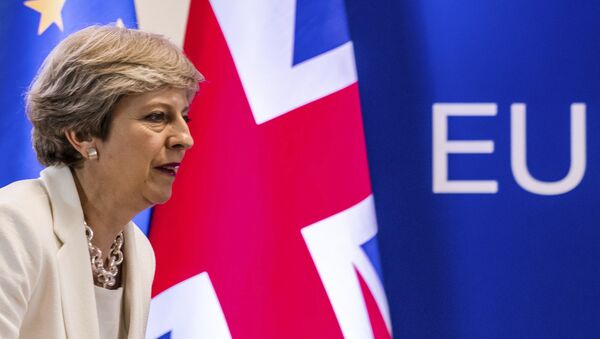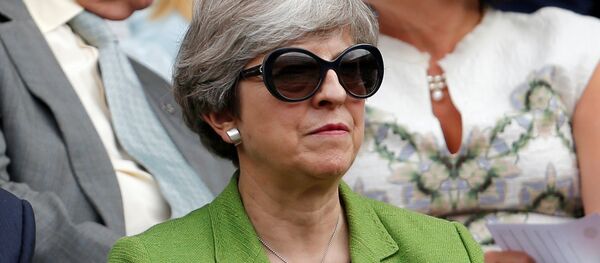Current and former senior civil servants, both overtly and anonymously, have spoken of the extreme frustration within Whitehall at May's handling of Brexit negotiations in the period between the June 2016 EU referendum and the June 2017 general election.
In particular, they suggest May tied the hands of UK negotiators with policies devised without proper cabinet consultation, while her inner circle in Downing Street insulated her from "difficult" news from Brussels, leading the embattled prime minister to approach negotiations blighted by an "absence of realism." The result, many feel, is that securing "no deal" is becoming ever-more likely.
May's government seems cognizant of this eventuality, reframing the former slogan "deal or no deal" as "no deal is better than a bad deal."
Chancellor Philip Hammond went as far as comparing Brexit to purchasing a house, in that one doesn't move all their furniture into a new residence on the day they buy it, typically.
The ruling Conservatives are still reeling from the party's shock collapse during the election, which necessitated the formation of a controversial support agreement with the Northern Irish Democratic Unionist Party, which effectively cost US$2 billion to achieve.
The Conservatives are leading Britain forward: 3m more jobs, income tax cut for over 30m, inequality down and the deficit cut by two thirds. pic.twitter.com/6Vuy1q0xLp
— Theresa May (@theresa_may) July 19, 2017
While the election was fought to give May a stronger hand in negotiations, the government has since been forced to do a hard reset on its Brexit plans — in July, Hammond admitted ministers had been forced to go back to square one in policy terms, making major concessions in the process.
For instance, May has been compelled to accept the necessity of a "transition period" in which the UK's membership of the EU is temporarily downgraded, allowing for a phased departure.
Secession negotiations made little progress before parliament retired for the summer recess, although around 100 civil servants are said to be still at work on hammering out the UK's position, and creating two new departments — on exiting the EU and international trade.
🎥 LIVE: Press conference following the second round of #Article50 negotiations with the United Kingdomhttps://t.co/K0emvaK5xz#Brexit pic.twitter.com/7ci2rJhbjS
— European Commission (@EU_Commission) July 20, 2017
Such is the degree of failure and inertia many perceive, some MPs have called for a parliamentary inquiry into the various shortcomings evidenced over the year since the referendum.
While the UK is seemingly unprepared, the European Commission and Council are said to be harmonious and well organized. One unnamed civil servant has been quoted in the mainstream media as saying the government's approach to Brexit had descened to a "state of anarchy" — and likened the deterioration in preparedness to "[going] from having a captain on the bridge to having no captain at all."
The condemnations of Whitehall's top inner brass can only further add to the pressure on May.
In July, it was announced at least 15 Conservative MPs had reportedly agreed to sign a letter of no confidence in her leadership, in order to unseat her as party leader and prime minister. Some sources have suggested the UK's second female Prime Minister may not last beyond the Conservative party's October conference.
According to party rules, 48 signatures are required to trigger a leadership contest — and on top of the 15 "core" potential signatories, the number of "May must go" proponents fluctuates depending on current events. Given the question marks hanging over her leadership, it's likely May warmly welcomed the summer recess, which began July 20 and runs until September 5.
Whatever May's post-conference state, bookmakers are already taking bets on the identity of the next Conservative leader — and David Davis, Secretary of State for Exiting the European Union, is the clear front-runner.






